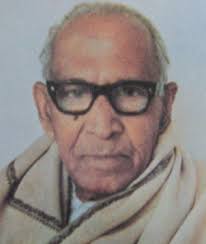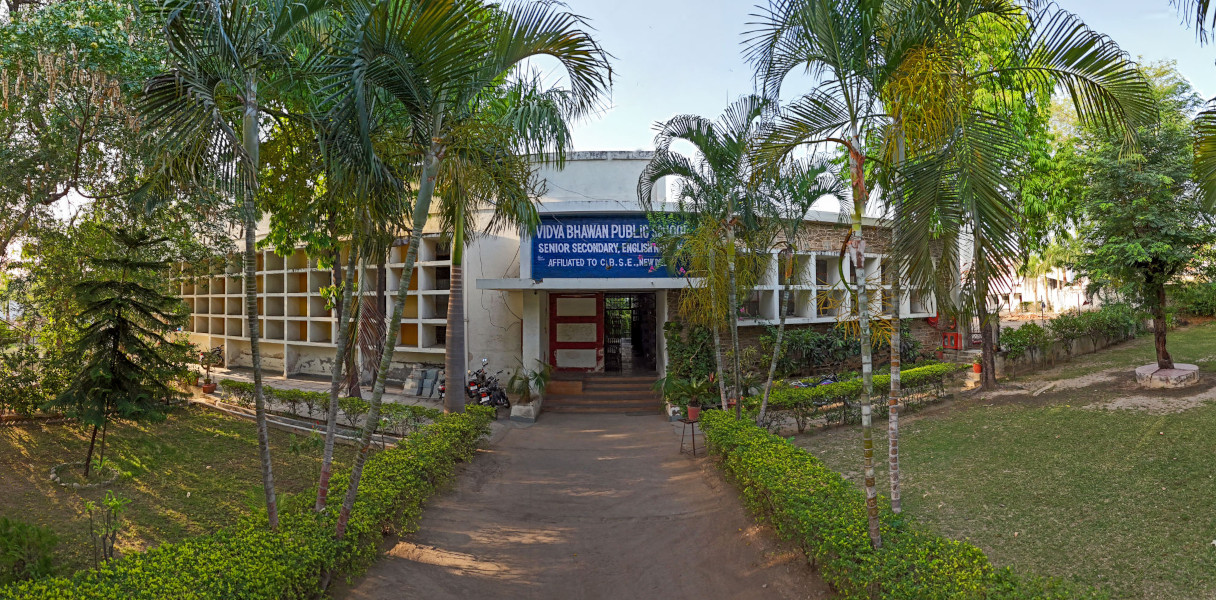
The roots of Vidya Bhawan trace back to a thoughtful moment during a European journey in 1926-27, when Dr. Mohan Singh Mehta was made to wait over an hour for a train. While seated in the waiting hall, he penned in his diary a vision for a progressive school—one based on Lord Baden Powell's "Boy Scout Movement", aiming for the holistic development of children: physical, intellectual, social, and moral.

This dream resurfaced in May 1930 during a scouting trip to Kashmir. Amidst educational discussions in the rains of Gulmarg, the idea matured further.
The foundation stone of Vidya Bhawan School was laid on 16 January 1931 by Shri Sukhdev Prasad, the then Prime Minister of Mewar State. The school officially began operations on 21 July 1931 in the Haveli of Devgarh with four classes (5th to 8th grade), 58 students, and 10 teachers. The first Principal was Dr. Kalu Lal Shrimali, who later became Principal of the Teacher Education Institute (1942), Union Education Minister of India, and Vice-Chancellor of Banaras and Mysore Universities.
Dr. Mehta’s dream was to establish an experimental, progressive, and national educational system that aimed at social reconstruction through education. The focus was on creating an environment that catered to every child’s individual needs and all-round development. Vidya Bhawan aimed to instill a broad worldview and adaptability in students—nurturing responsible and aware citizens using scientific methodologies.
Unlike traditional schools of the era, Dr. Mehta envisioned a child-centric, psychologically driven learning environment—where learning was joyful, creative work was encouraged, play was ample, and individual expression was nurtured. Students were empowered to explore their potential in an atmosphere free of societal bias.
Key Principles Implemented:
Elimination of caste, religious, or communal discrimination.
All students dined together; children of sanitation workers played alongside others.
The culture encouraged inclusivity, leading to a broad and holistic lifestyle.
While co-education existed at primary and university levels in some parts of India, its implementation at the secondary level was revolutionary in Rajasthan. The institution also invited foreign educators aligned with its goals to strengthen its educational values and global outlook.
Contrary to rigid schooling norms, personal attention to each child was a priority. Teachers and students shared a warm relationship, ensuring that discipline was intrinsic, not enforced.
To align with its objectives, Vidya Bhawan was established as a full-day school. Though hostel facilities were limited, the schedule offered a quasi-residential experience to every child.
Unique Features of Vidya Bhawan:
Team System (Dal Paddhati):
Students were divided into teams, each mentored by two teachers. Every child's progress was meticulously tracked. Activities like hikes, night camps, and parent interactions ensured comprehensive development in smaller groups.
Vanshala – Learning in the Lap of Nature:
Vanshala, a pioneering educational experiment, offered learning beyond textbooks through observation, exploration, expression, and reflection in nature’s open setting. Away from families for 10–15 days, students experienced lessons in confidence, independence, hard work, collaboration, and leadership.
Project-Based Learning for Annual Functions:
A theme was selected each year, and students, grouped by interest, undertook project-based research. Activities included lectures, film screenings, chart-making, modeling, and exhibitions. The event culminated with cultural performances, integrating music, drama, and visual storytelling.
Through "learning by doing", Vidya Bhawan has remained a torchbearer of progressive education in India, transforming thousands of lives over 94 illustrious years.
Presentation by: Dr. G.L. Menaria